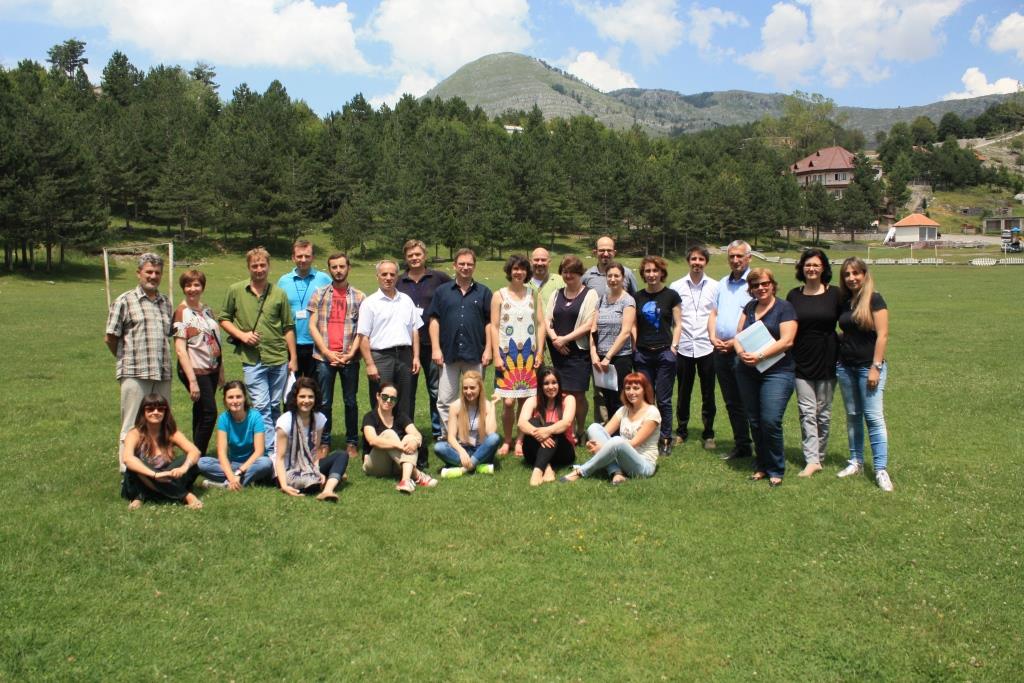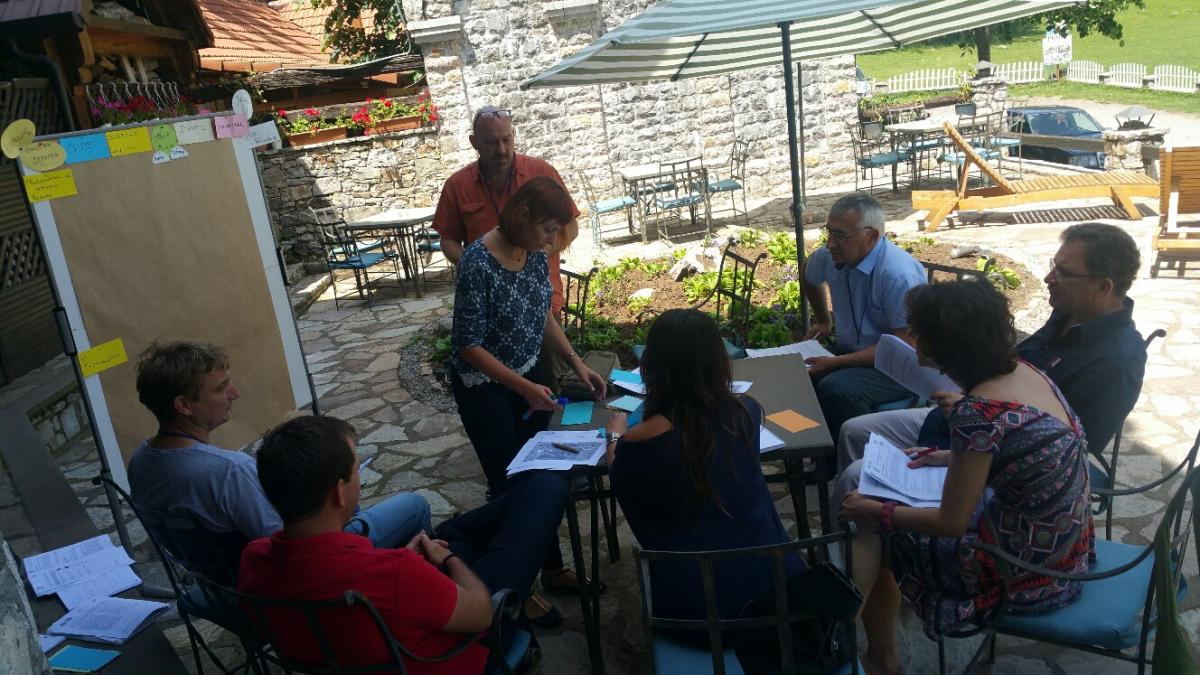Assessing ecosystem services in South-East Europe
Stemming from the regional assessments on capacity development needs and priorities on biodiversity in South-East Europe, the training was designed to transfer knowledge and enhance capacities of the governmental officials, researchers and civil society representatives on describing and assessing the ecosystem services for integrated development planning and management. The training “Integrating Ecosystem Services into Development Planning” was held end June and brought together 30 participants from various nature conservation institutions and civil society organisations from seven countries of South-East Europe. It also served to present case studies and share best practices on assessing of the ecosystem services from the region.
The event was in line with a regional approach to strengthening knowledge on tools and initiatives related to ecosystem services assessments and their integration into development planning in South-Eastern Europe. Participation of representatives from different sectors, along with experts from research institutions and civil society will help integrate the principles of ecosystem services into the future development of policies, strategies and action plans.
The joint training affirmed the partnership between IUCN Regional Office for Eastern Europe and Central Asia (IUCN ECARO) and GIZ Open Regional Fund for South-East Europe – Biodiversity project (GIZ ORF BD). It is part of the ongoing IUCN project ‘Towards Strengthening Conservation Planning in South-Eastern Europe’, funded by the MAVA Foundation and the new ORF BD sub-project “Ecosystem Services Assessment and Valuation (ESAV) for future course of action in South-East Europe (SEE)” funded under the ORF BD by the German Federal Ministry of Economic Cooperation and Development (BMZ) and implemented by Deutsche Gesellschaft für Internationale Zusammenarbeit (GIZ).
The training was delivered in partnership with GIZ’s global project “ValuES: Methods for integrating ecosystem services into policy, planning and practice”, designed to build capacities, methods and principles of ecosystem services assessment for policy impacts. Based on the Harvard Case Methodology, which combines the theoretical and practical elements of a stepwise approach, the training had interactive agenda and different activities, including the field trip. Participants had the opportunity to test their knowledge gained on the training and practice on the exercises, in direct communication with selected stakeholders for the ecosystem services in Razma region. The participants concluded their work with concrete recommendations for their model of ecosystem services.
The evaluation of the training by the participants showed that their expectations were fully met. This was the first in a series of training events that will form a larger scale programme aiming to increase awareness and capacity on the topic, including the transfer of knowledge gained by the participants to colleagues in the sector and beyond.
Contact person for IUCN ECARO Sanja Pokrajac
Contact person for ORF BD is Milena Peralovic





